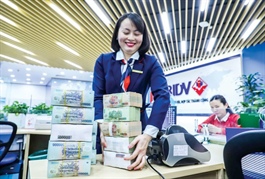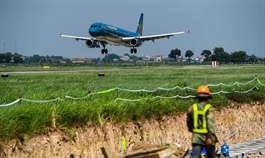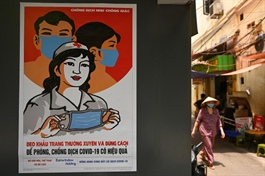Multiple agreements with New Zealand underpin ties
Multiple agreements with New Zealand underpin ties
Vietnam and New Zealand have cemented new ties with the latest signing of the Regional Comprehensive Economic Partnership and the strategic partnership between both nations. Wendy Matthews, New Zealand’s Ambassador to Vietnam, shared with VIR’s Thanh Van the upcoming opportunities and key areas for stronger bilateral collaboration.
After a lengthy eight-year negotiation process, the Regional Comprehensive Economic Partnership (RCEP) was finally signed. What are the prospects of the economic ties between Vietnam and New Zealand following the event?

Wendy Matthews, New Zealand’s Ambassador to Vietnam
|
We are delighted that the RCEP was signed, as the agreement creates opportunities for more flexible supply chains around the region for all involved parties. Another key point to highlight is that the RCEP comes at the time of the pandemic and growing trade protectionism, signalling to the world that the region is open for businesses, despite these hurdles.
Moreover, New Zealand and Vietnam are also partners in the longstanding ASEAN-Australia-New Zealand Free Trade Agreement and more recently the Comprehensive Progressive Trans-Pacific Partnership. Both countries have a longstanding system of arrangements that fostered trade between them and led to a trade growth of 325 per cent compared to 10 years ago.
This year marks the 45th anniversary of ASEAN-New Zealand relations. Both nations also formed a strategic partnership in July. Where is Vietnam placed among New Zealand’s trade and investment partners in ASEAN?
In July, the prime ministers of New Zealand and Vietnam launched the strategic partnership as one of the key pillars of the relationship. Based on recent trade statistics, Vietnam is now New Zealand’s 12th-largest trading partner. For us, Vietnam is increasingly an important economic and trade partner in this region, and we can see this relationship continue to grow into the future.
Although this is a turbulent year, I want to highlight that our trade continues to grow. New Zealand’s exports to Vietnam grew 8.9 per cent this year, which shows very stable opportunities between us as consumers continue to be interested in receiving the products of its partner country.
Both countries have also signed a number of agreements underpinning the strategic partnership, which cover ease of certifications for agriculture products, educational engagement plans, and exchange between the finance ministries, among others.
What can make the Vietnamese market the most attractive one to New Zealand investors?
A vital element is how Vietnam’s FTA network is developing. The country works very hard in its economic diplomacy to ensure good relations with its key trade partners, which helps to transform the nation into an attractive investment spot.
For New Zealand, we generally find that investment follows trade. Companies have established relationships and gained knowledge about the market after trading with Vietnamese partners for decades. After such preparation, making investments seems much more doable.
In terms of ease of doing business, I think there is still room for improvement, but New Zealand and Vietnam are working hard to facilitate a better business environment.
What are focus areas for both countries in the coming time?
There are some areas within our trade and economic relationship that are strongly growing, particularly agriculture and education, as well as in aviation and IT services.
Both nations are strong in agriculture, with very complimentary products. New Zealand is very strong in dairy, meat, and fruits, while our citizens enjoy Vietnamese coffee, nuts, and tropical fruits.
In the education sector, the pandemic has presented some challenges for students travelling to New Zealand. Previously, over 3,000 Vietnamese students were studying in our country, so we hope that we can re-establish these numbers when borders are safe to open again.
In the meantime, there is a lot of work being done by New Zealand’s educational institutions to further develop partnerships with Vietnamese institutions and deliver high-quality education services to the whole country.
This year, even among many difficulties, a number of New Zealand companies are looking to establish a local presence in Vietnam. In some cases, COVID-19 has delayed their plans for some time as it is more difficult to visit the market.
In addition, we have some companies that want to invest in various other areas, including food and beverages, manufacturing, IT, and of course agriculture.



























